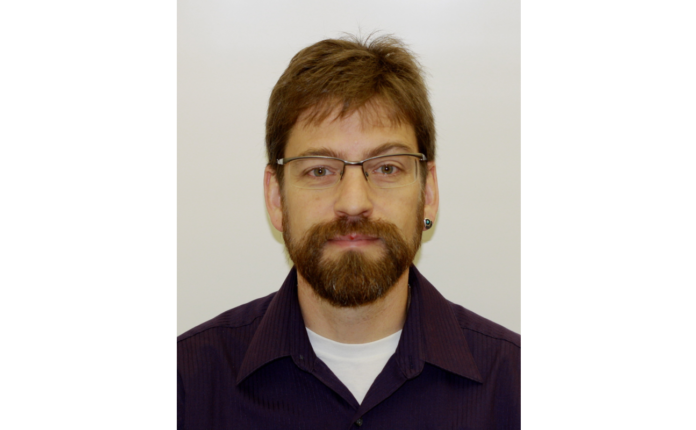By Ekanki Chawla and Esra Al-Abduljabar
Allan Arndt has been a biology professor at UFV for about 15 years and has taught nearly every biology course in the discipline including conservation, molecular, and cellular biology, in addition to leading multiple directed studies. Alan has been the biology department head for nearly six years, and is now finishing up his final term in the position. Alan loves teaching courses in a way which allows students to connect each idea to another, which in turn promotes active thinking. He is very passionate about giving his students valuable knowledge in an engaging way.
What brought you to UFV?
Well, I did my PhD because I wanted to study biology, which actually took me quite a ways around the world — my first postdoc was in Belgium, and my second one in Utah. When I saw an ad for professorship in Brandon, Manitoba, I ended up moving there. But, during my time there, I realized that I was about 100 kilometres from the geographic centre of Canada, which is about as far away as you can get from an ocean. When this job at UFV came up, I was lucky enough to get it. So, really, it was my love for teaching, and proximity to the ocean, that brought me here.
What were your two post-docs in?
In Belgium, I was studying African catfish for a population genetics project. Then, I was in Utah for another population genetics project looking at Podocnemis expansa, an endangered river turtle in the Amazon. The Podocnemis expansa species is quite interesting, as the female carapace can be almost a metre across, and they can weigh up to 70 kilograms.
Due to anti-predation behaviour, the turtles only nest on a new moon, since that’s when it is the darkest. All the females come out at the same time, and it takes them all night to lay their eggs, since their clutch is usually about 70 eggs (per female). Nobody really understands where the juveniles go. Once they hatch out they’ll go back into the river, but then you hit the wet season, and a lot of the forest actually floods, so there’s tremendous connections that they can disperse through.
How would you personally define good teaching?
For me, good teaching requires respect and engagement with students. One of my fellow colleagues here who retired last year, Ron Willen, always said, “Test what you taught,” and that really resonated with me. I think it’s important to also use a variety of different teaching styles, including an active form of teaching, whenever there is a possibility to do so.
What led you to becoming the biology department head?
I wanted to challenge myself in various aspects, such as running meetings, keeping faculty and students happy, as well as learning how to deal with student’s problems and inquiries effectively, but it isn’t always easy. The timetabling aspect of the role is just like a little crossword puzzle, so I actually enjoy that. It was all very daunting at first, but I’m glad I challenged myself, and I’ve enjoyed serving the department so far.
What kind of changes have you noticed in the UFV culture throughout your time here?
In my opinion, the research presence at UFV has strengthened over the years, and I would say the students have gotten stronger as well. Since transitioning from a college, and having gained the university status quite a number of years ago, I believe the reputation of the institution is much stronger, too.
What are your current research interests or projects?
We’re currently looking into the molecular population genetics of sea cucumbers along the B.C. Coast, and I’m also involved with projects that assess biodiversity in the Lower Mainland. We’re also looking into bacterial community assessments of hot springs using next generation sequencing.
Have there been any students or faculty who have been particularly influential to you at UFV?
Barbara Moon was the biology department head here for a while, she retired a couple of years ago, but she was in fact the one who introduced me to effective group work. I really appreciate a lot of my colleagues, and I feel lucky every day to be in this department, surrounded by such great individuals. I’ve also had a number of fabulous students that have gone on to do great things.
How would you describe what you’ve gotten out of your time at our university?
I’ve had a fantastic career at UFV. I love teaching, and I love being able to get to know the students in my classes. I’ve found that the past 15 years here have been very rewarding.
This interview has been edited for content and clarity.


